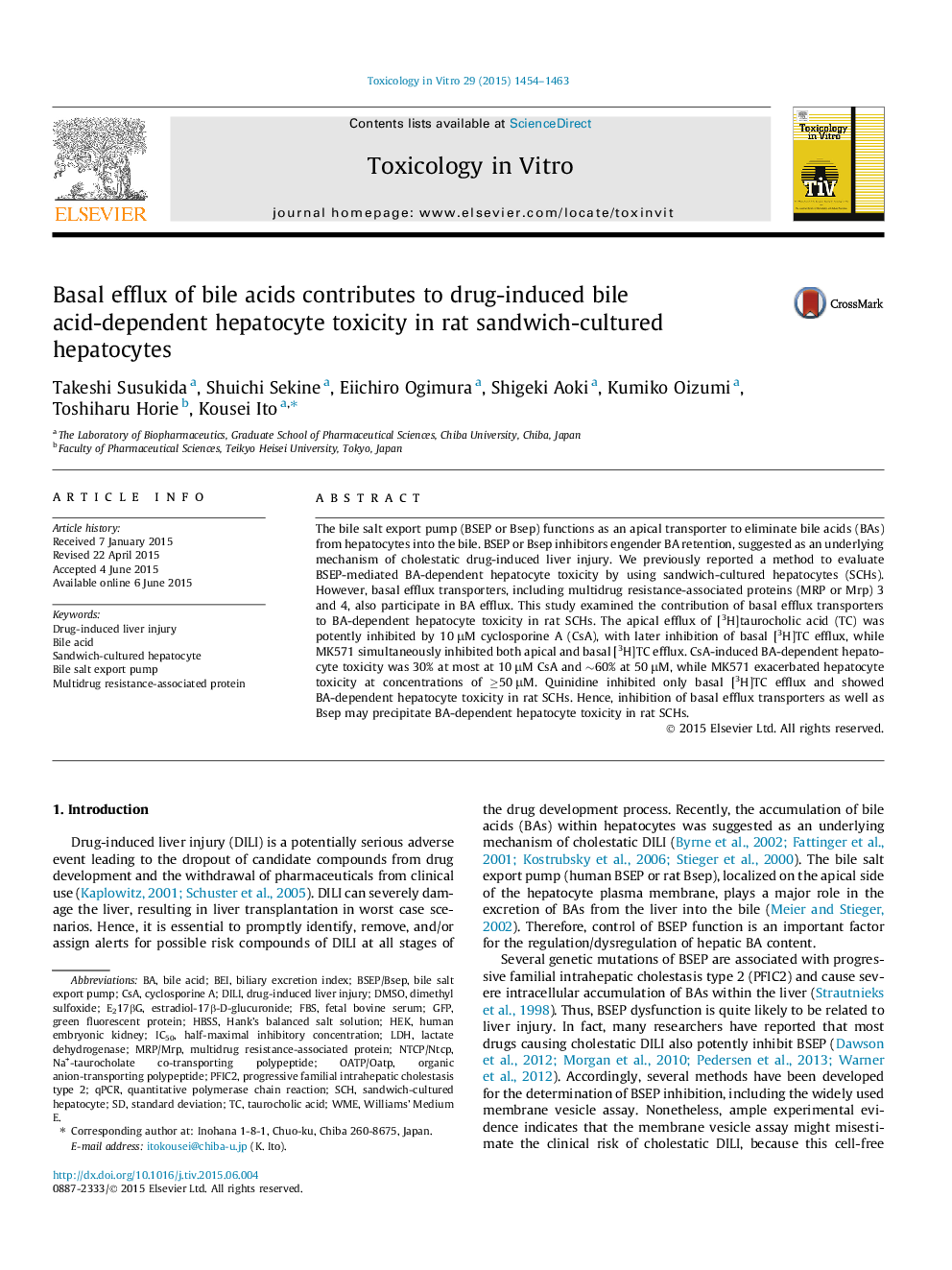| Article ID | Journal | Published Year | Pages | File Type |
|---|---|---|---|---|
| 5861370 | Toxicology in Vitro | 2015 | 10 Pages |
â¢Accumulation of bile acids in hepatocytes is a mechanism of cholestatic liver injury.â¢Sandwich cultured hepatocytes was used to evaluate cholestatic drugs in vitro.â¢Some basal efflux transporters are known to participate in bile acids efflux.â¢Inhibition of basal bile acids efflux by test drugs exacerbated hepatocyte toxicity.â¢Basal efflux of bile acids contributes to bile acid-dependent hepatocyte toxicity.
The bile salt export pump (BSEP or Bsep) functions as an apical transporter to eliminate bile acids (BAs) from hepatocytes into the bile. BSEP or Bsep inhibitors engender BA retention, suggested as an underlying mechanism of cholestatic drug-induced liver injury. We previously reported a method to evaluate BSEP-mediated BA-dependent hepatocyte toxicity by using sandwich-cultured hepatocytes (SCHs). However, basal efflux transporters, including multidrug resistance-associated proteins (MRP or Mrp) 3 and 4, also participate in BA efflux. This study examined the contribution of basal efflux transporters to BA-dependent hepatocyte toxicity in rat SCHs. The apical efflux of [3H]taurocholic acid (TC) was potently inhibited by 10 μM cyclosporine A (CsA), with later inhibition of basal [3H]TC efflux, while MK571 simultaneously inhibited both apical and basal [3H]TC efflux. CsA-induced BA-dependent hepatocyte toxicity was 30% at most at 10 μM CsA and â¼60% at 50 μM, while MK571 exacerbated hepatocyte toxicity at concentrations of â¥50 μM. Quinidine inhibited only basal [3H]TC efflux and showed BA-dependent hepatocyte toxicity in rat SCHs. Hence, inhibition of basal efflux transporters as well as Bsep may precipitate BA-dependent hepatocyte toxicity in rat SCHs.
